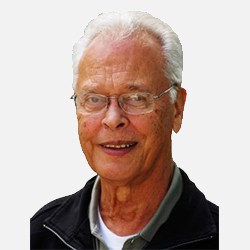The views expressed in our content reflect individual perspectives and do not represent the authoritative views of the Baha'i Faith.
One of the gifts or characteristics of the human level of existence is consciousness—to know; to know that we know; and further, to know what we don’t know.
One essential aspect of that gift is free will. If God indeed is the Creator, and He has given us as a characteristic of our ontological existence the ability to choose, then we simply can’t have it both ways—the ability to choose, but when we make a bad choice, holding Him responsible:
Certain matters are subject to the free will of man, such as acting with justice and fairness, or injustice and iniquity—in other words, the choice of good or evil actions. It is clear and evident that the will of man figures greatly in these actions. … he is free in the choice of good and evil actions, and it is of his own accord that he performs them. – Abdu’l-Baha, Some Answered Questions, newly revised edition, p. 287.
Do we hold the vegetable level responsible for the mineral level’s inability to grow through photosynthesis? Are animals responsible for the plant world not being able to receive stimuli though the conduit of the five senses? In like manner, are we responsible for the fact that animals have never been able to create a civilization or send a dog to the moon? Why should the pattern that is very consistent suddenly change with God in His relation to humanity, especially when He chose to allow man the capacity for making choices?
We simply cannot have it both ways. We cannot say that we have the ability to choose, and then negate the responsibility for having that capacity by then saying if we make the wrong choice, then God must come and set things aright. Voltaire, in his book Candide, said something to this effect: God made man in His image, and man, being a gentleman, returned the favor.
While God has give us the ability to make choices, when we get too far astray, to the point of jeopardizing our survival, he doesn’t turn his back and say, “Tough love is what you need—you made your bed, now lie in it!” Instead, from age to age God has sent humanity a continuum of messengers and prophets of God that in essence have bailed us out, and set us on the right path, but not without some retribution, some consequence for our bad choices. Through the intermediary of these manifestations of God we are enabled to reach towards and into His domain, and speculate about His reality and the stage of development we eventually will enter when we die.
This gift has been given to us by God. For each of the earlier levels of creation this capacity has been denied. At each earlier level of creation, according to Abdu’l-Baha, there exists some form of Spirit that morphs into increasingly more complete amalgams within each successive ontological level as one moves up the hierarchy, culminating in our capacity for conscious thought and knowing.
We can’t have it both ways—to both have the ability and capacity for consciousness, which includes choice, while at the same time expecting God to infuse us with a built-in “glory gland” that permits us to completely circumvent this capacity and characteristic, and only respond in accordance with an error-free, pre-determined, pre-wired DNA structure.
Except for God Himself, we are all in various stages of process and evolution. Science and philosophy tell us that there are only two basic processes operating in the universe: entropy and negative entropy. Entropy is the process of disintegration, a breaking down, a decaying. Negative entropy is change in the direction of higher and more complex organization, which enables the entity in question to have the potential of gaining greater control over its environment and its existence, thereby enhancing both survival and viability.
That means static actuality is a fable. There is no such phenomenon outside the delusional and misleading thoughts of humans! We either progress or regress. Here again we have a choice. Hell is retrogression. Heaven is choosing and then consequently feeling, thinking about and acting on the stretch-marks of our own growth, development, and progress.
The unbearable alternative—despair, depression, and sensing the existential angst stemming from our retrogression—produces a pathetic, pathological, and ultimately intolerable state that can only be assuaged through the divine elixir, the word of God, in whatever legitimate form it happens to be presented and received. There is no room for spiritual arrogance here, thinking that only the avenue one personally has found most useful and effective is for everyone.
This is my notion of what is meant in part by the independent and unfettered search for truth—each of us must utilize our own free will to discover the ultimate reality of life and direct our own evolution.
















Comments
Sign in or create an account
Continue with Googleor